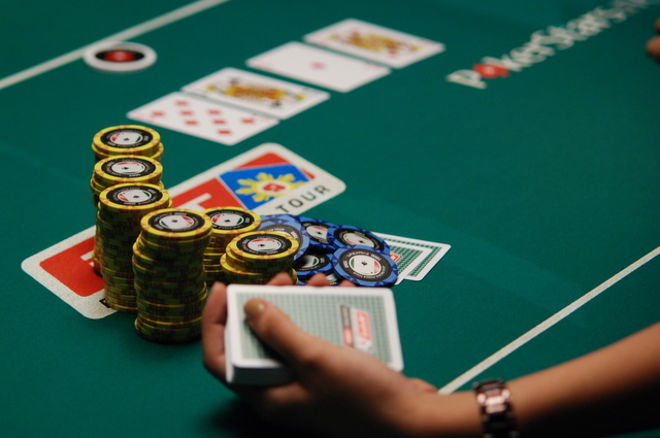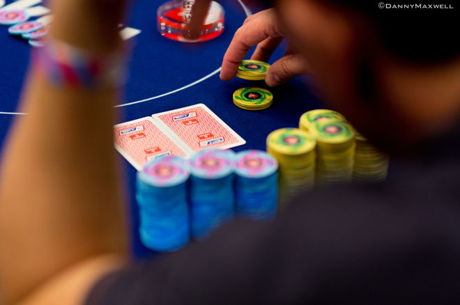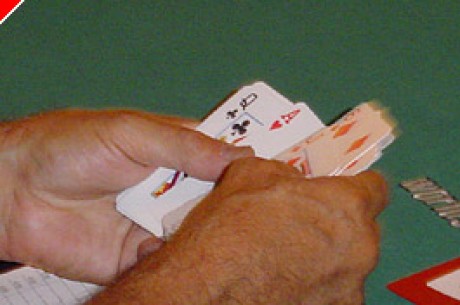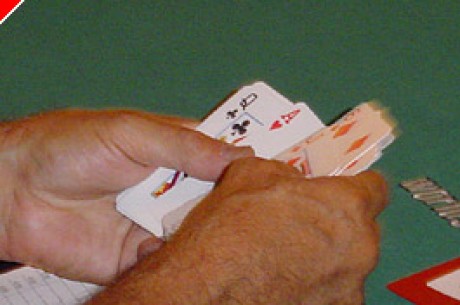Stud Strategy - Poker Paradoxes

Much of what's written about poker is just plain common sense. Writers fill their pages with standard bromides like "self control is one of the most important parts of a winning game" or "it's not how big your stack is when you start the game that's important �� it's what you walk away from the table with that counts". "Be aggressive when you have the best hand", "if you're going to bluff, bet with conviction", "don't waste tricky plays on players who don't have the ability to understand them" --- blah, blah, blah��
I've written many of those "wise" but pretty obvious words myself.
But sometimes, poker wisdom is not so obvious. Sometimes it runs counter to what you might intuitively think is proper action.
Here's an example of a poker paradox. I call it bluffing by folding.
Most people think that you bluff by betting or raising at least a fairly large sum of money to convince your opponent that you're very strong �C while in reality you're very weak. Your bet or raise gets him to fold his good but not great hand, fearing he is beaten. That's a standard bluff.
But I often bluff by folding.
It's all in when you should start your bluff. Don't start when you have a bad hand. Start at least a few hands �C if not many hands �C before.
You are best able to bluff if you have an image as a tight player. If you're perceived as wild or loose, your observant opponents will recognize that a bet from you doesn't necessarily represent strength but just your aggressive style. They're much more likely to call you with their medium strength hands. They may even raise you.
But if you're someone with a tight/aggressive image, they're much more likely to take your best seriously �C and fold to your action. So you set up the bluff by shaping your image with strategic folds.
I employed this tactic the other day at Foxwoods in a $20/40 game. I was in early position with an Ace up and a King in the hole. I had nothing else. I had only been there for a couple of hands. I thought about raising as an ante steal. It would have been a semi-bluff to be sure �C having to catch an Ace or a King on the next card if I didn't win the pot right there. But I noticed that two of the players were calling stations. And I doubted my early position raise would knock them out if they had even a borderline hand �C since they didn't know my play at all. Their habitually loose play and my unknown image would probably result in having at least one, if not both of them call me.
I could have called, hoping to hit one of the six cards that would give me a strong hand on Fourth Street. But I decided instead to strengthen my ability to steal in the future �C by folding my Ace. I figured that with a bunch of folds in a row, my image as a tight player would be secure �C and then I could more readily steal �C something that I've found very profitable at $20/40 when the ante and forced bet represent a fairly large percentage of the initial bet of $20.
I had a long string of completely unplayable hands. Naturally, I folded them all. Toward the end of this bad run of cards I had a situation similar to my first one. I folded the highest up-card.
The very next hand I was dealt a King in mid-position. There were three Aces up �C two in front of me. There were also two 9 showing, one in front of me. The first two Aces folded as did the 9. I raised with my K (I had a Jack and an 10 in the hole). I would have been happy to win the $29.00. The second 9 and the bring-in 2 called me.
Fourth Street brought me a 9 �C giving me an inside straight draw. The other 9 hit an unsuited 4. The 2 got an unsuited 5. I figured my tight image would serve me in good stead here, since it looked like neither of my opponents was ahead of the hand I was representing. I bet $20. The 9 folded and the 2-5 called.
On Fifth Street I hit a 6 and the 2-5 snagged a 4. I thought about checking �C since I had nothing. But the pot was not insignificant; my opponent didn't seem to improve, I had an image as a very tight player; my opponent might be more inclined to give up on Fifth Street, as many players are, because the bets double. So I bet, continuing my bluff and hoping for a fold. Nothing doing. He called me. The bluff I had set up clearly wasn't working.
On Sixth Street he hit a 5 and I paired my door card K. Well, I thought, at least I've been rewarded for all of my strategic scheming by getting lucky. I bet $40, knowing that he'd have to fold �C since he'd have to conclude that I had at least Kings up if not trips.
Wrong! He called me.
On the River I didn't improve. I checked, hoping he had missed some well hidden straight or flush draw and might check behind me. He checked behind me, but showed 4s and 5s �C taking down a large pot.
It would be better, I suppose, if my poker paradox ended up with a sweet victory on my part. Sadly, though I started my bluff by enhancing my tight/aggressive image, my loose opponent called me down anyway. Alas, no sweet victory. But here's another poker paradox for you. Making the correct move doesn't necessarily mean you win the hand!
Ed Note: Do you own a Mac? You can play online anytime you want at Pokerroom.com








